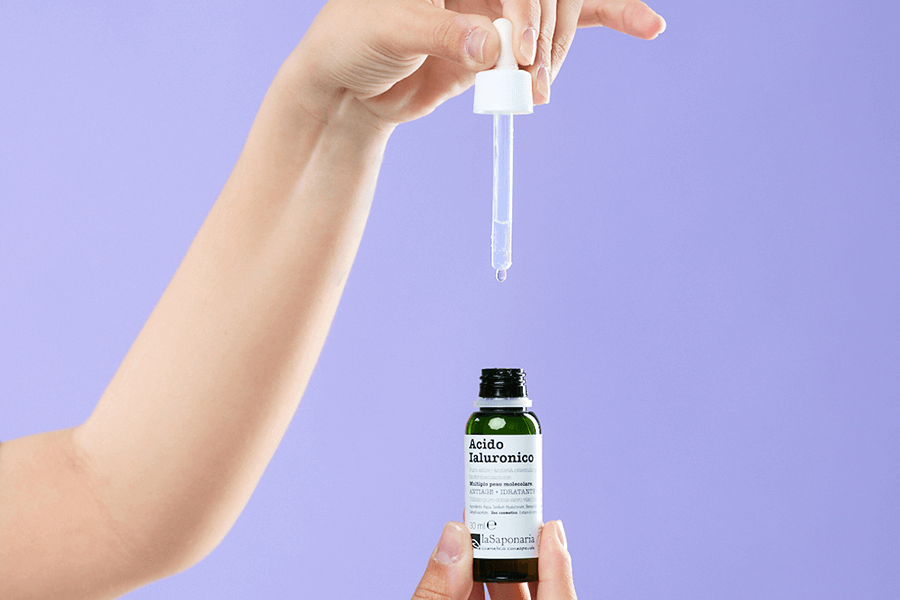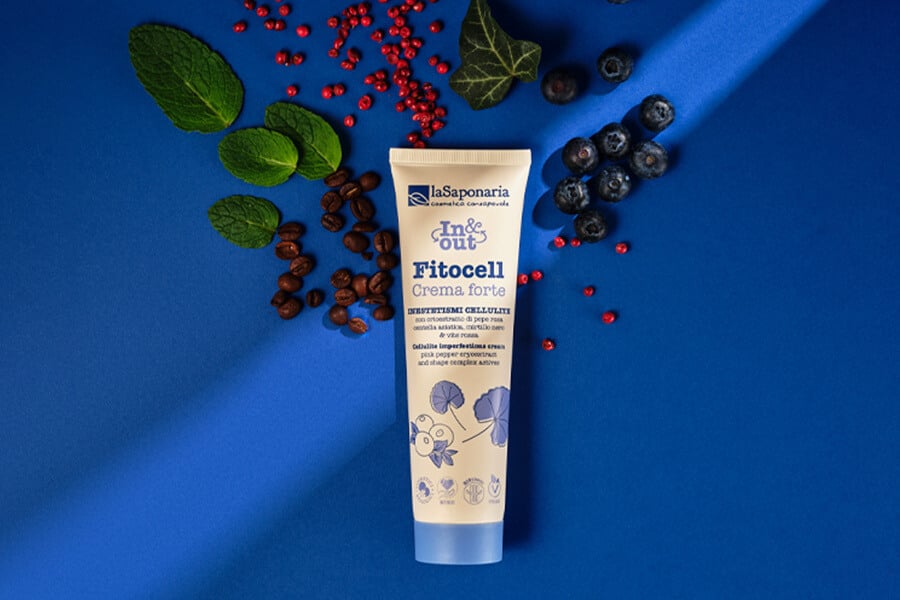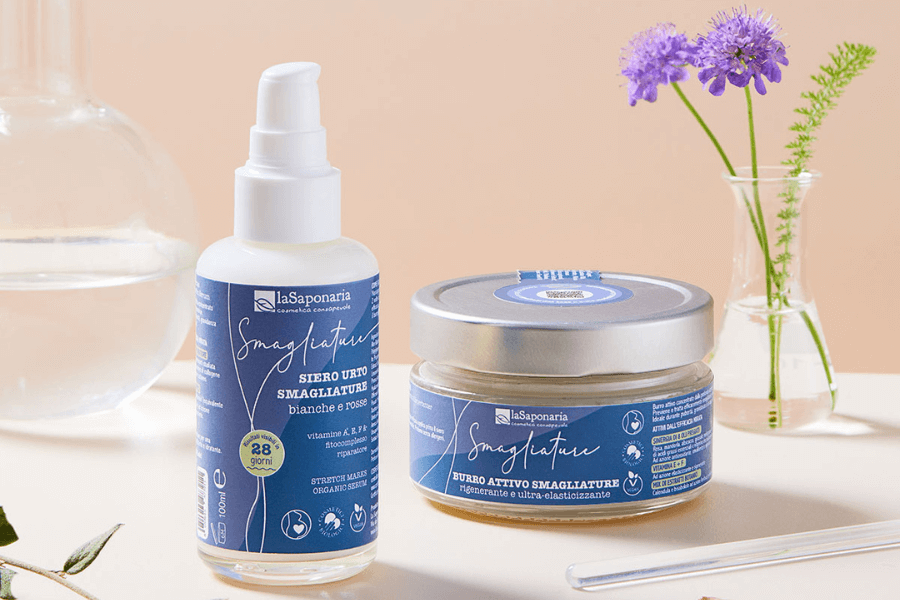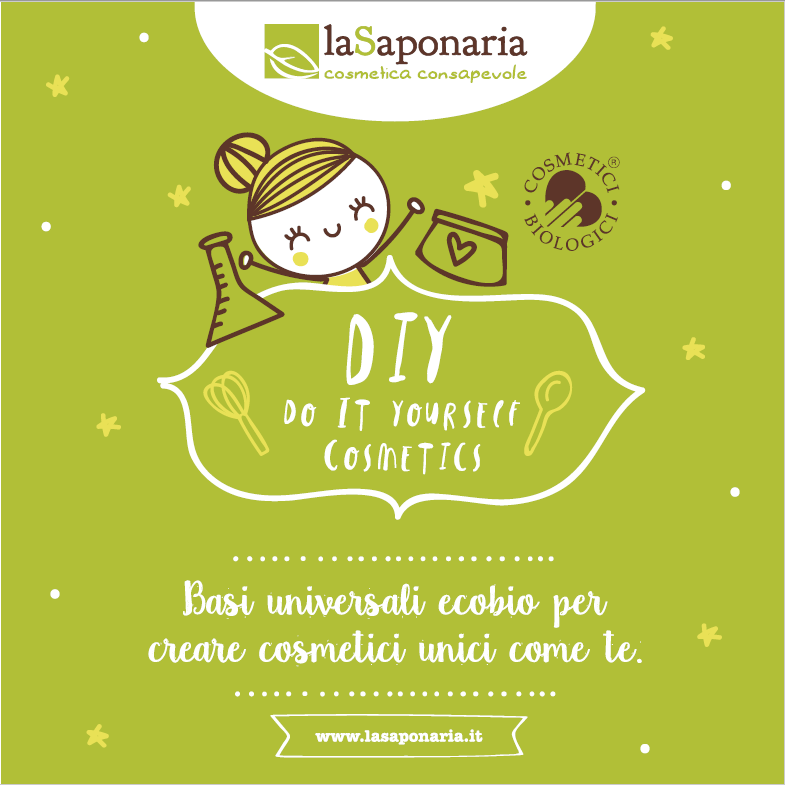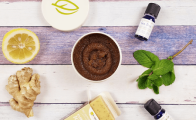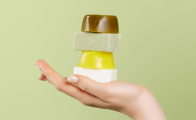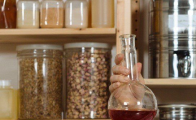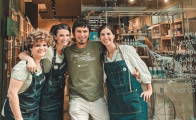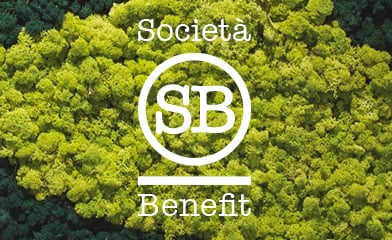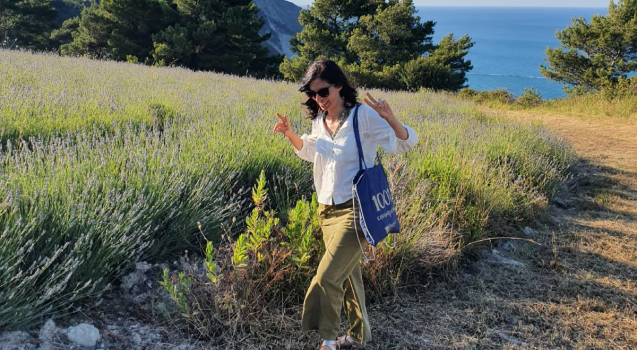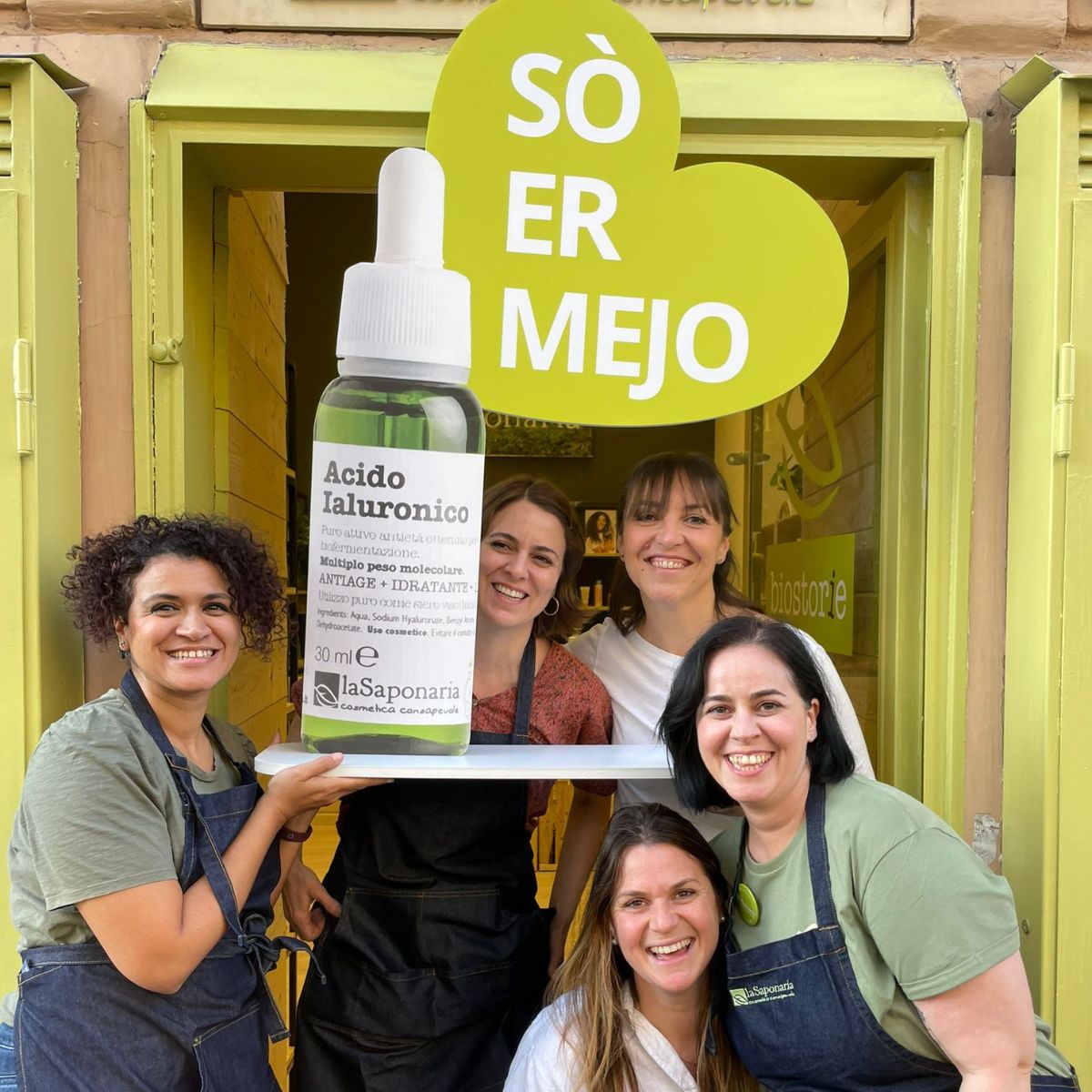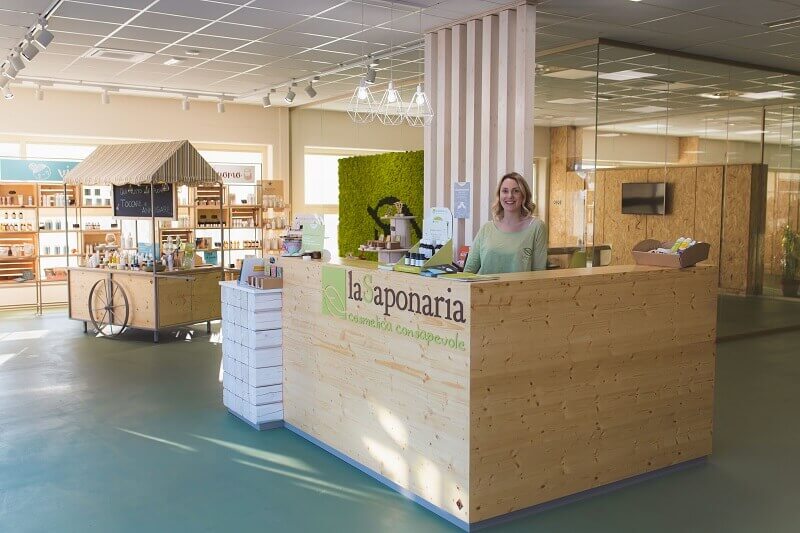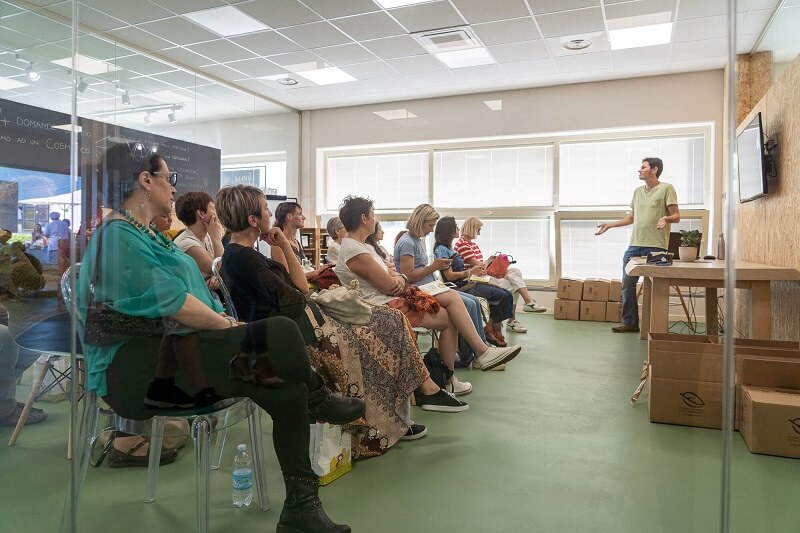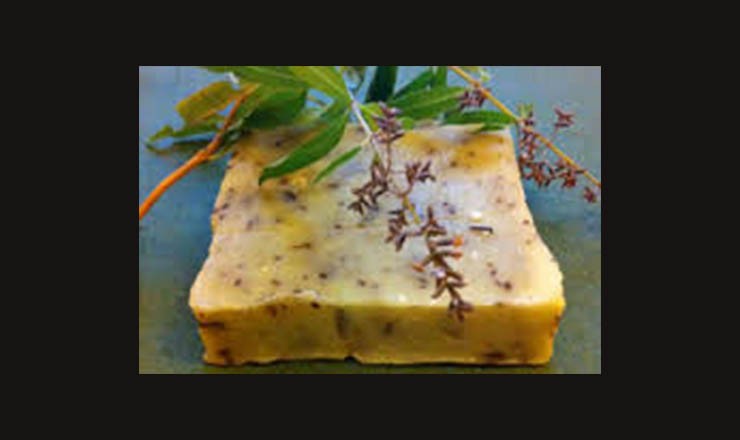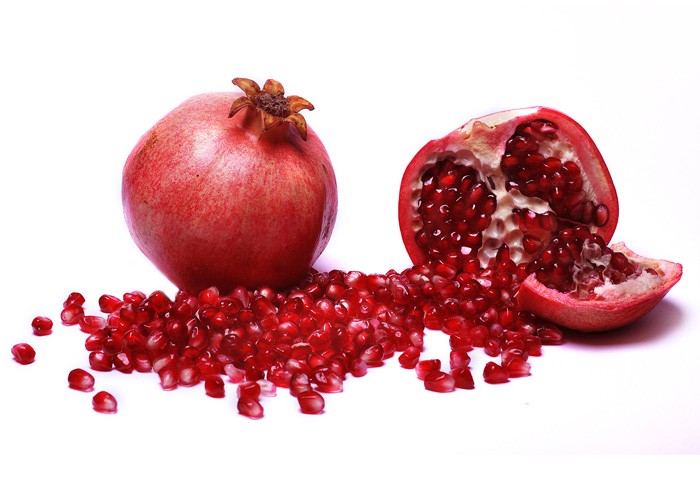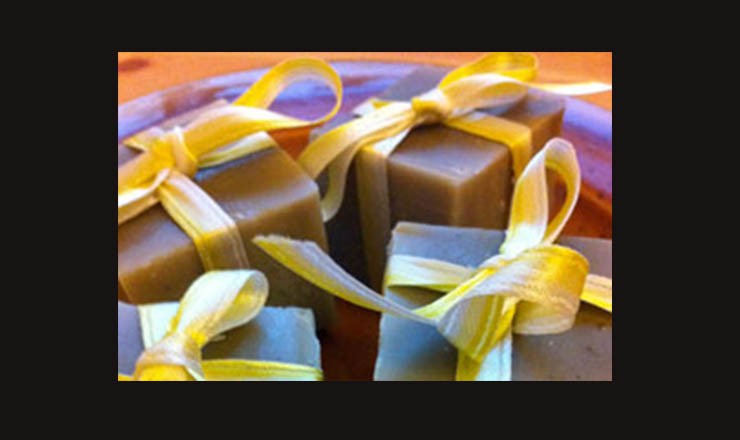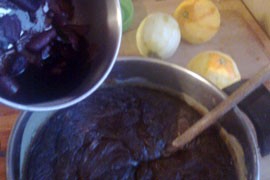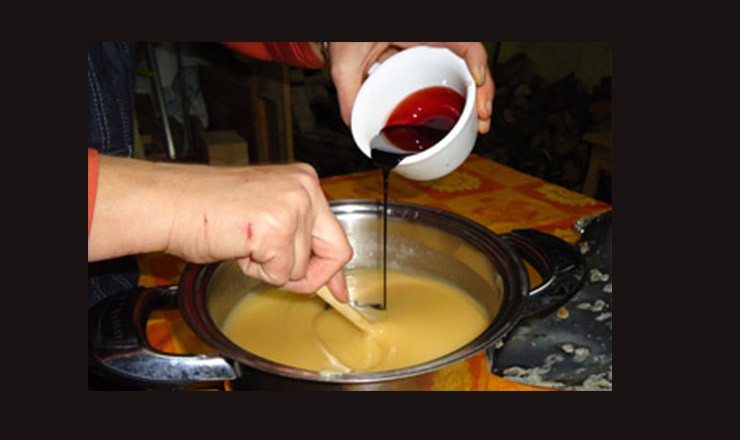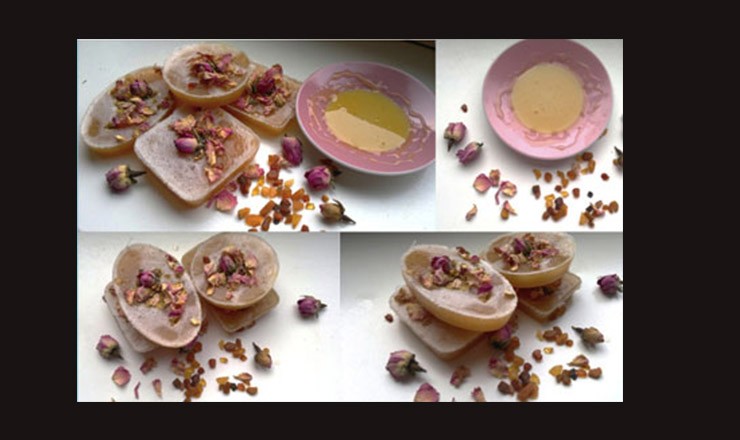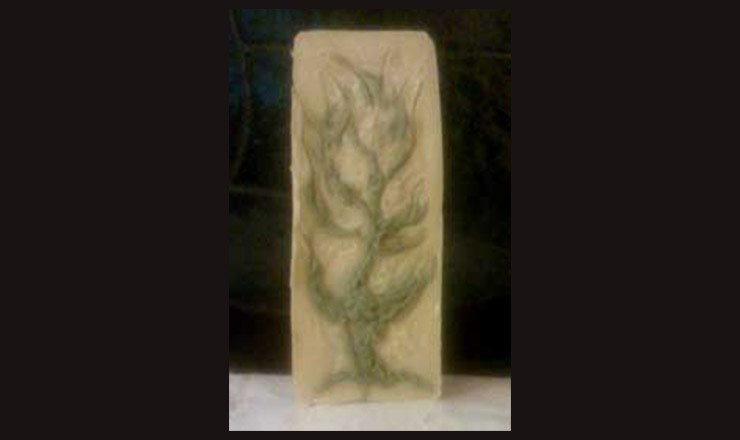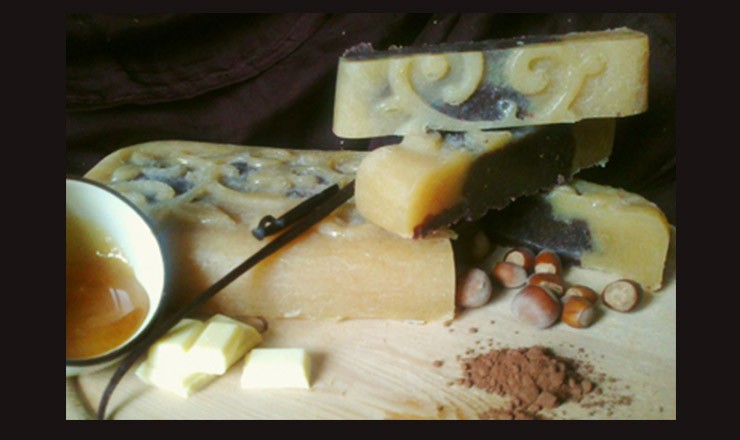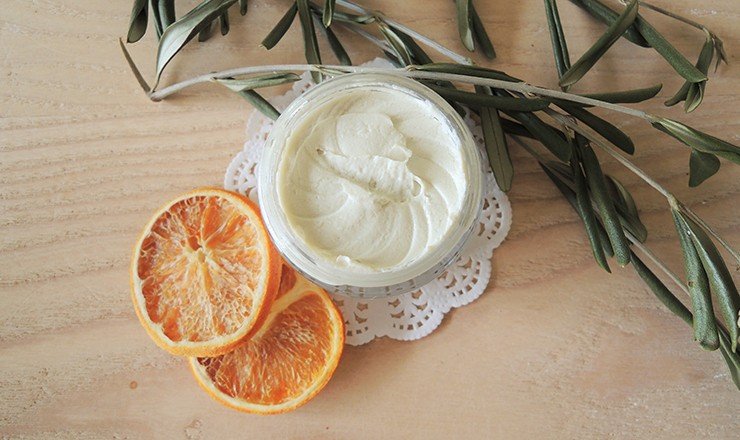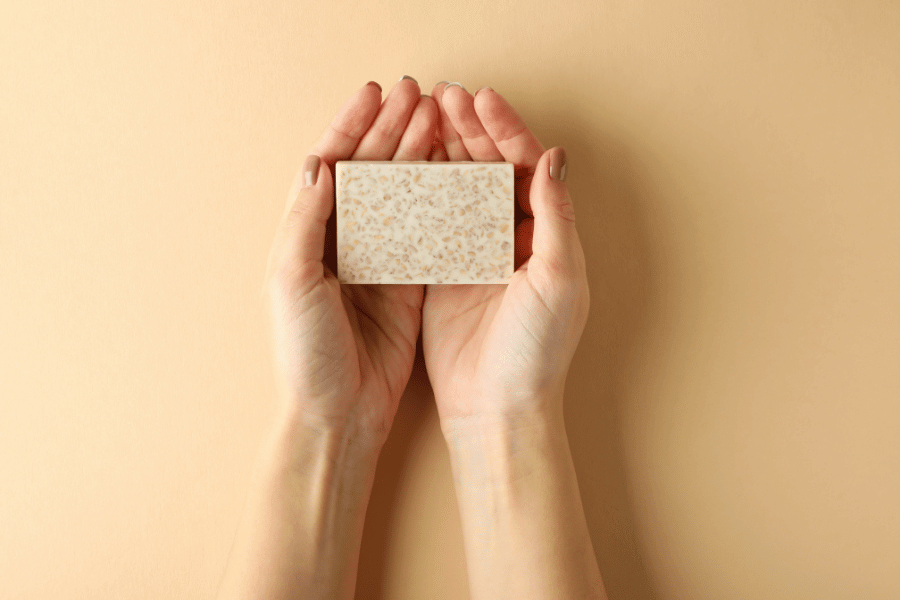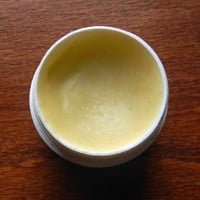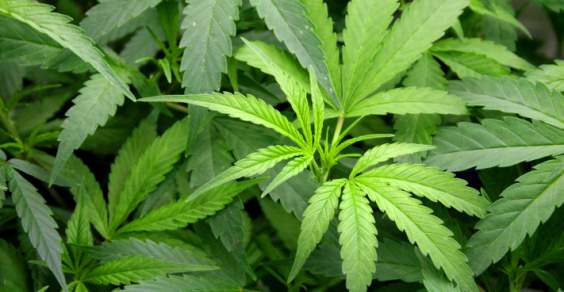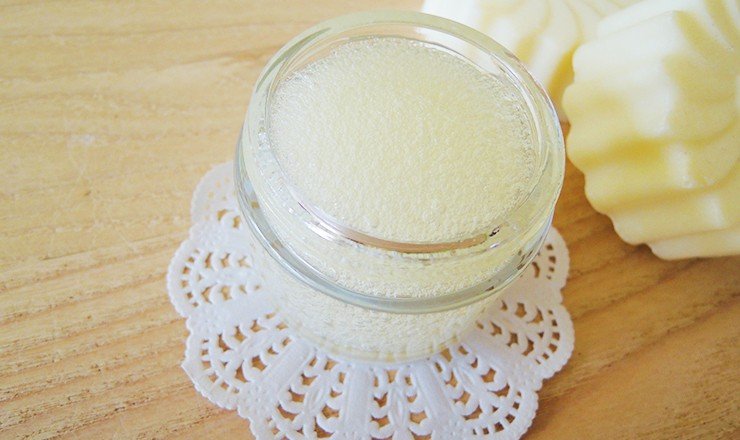Category: Soaps DIY recipes
This soap is inspired by the scent that invades our garden every summer, that of lemon beerbrush! At home we have always used lemon beerbrush in the kitchen, to make excellent herbal teas and a fantastic digestive liqueur .. And I thought: why not experiment with it in soap too? !! I then made this recipe with the hot method, using both the lemon beerbrush infusion and the leaves in the dough to create a light exfoliating effect. (this year, incredible but true, the lemon beerbrush is still in bloom in November !!)
Recipe candidate for the "Saponi e buoi dei paesi tuoi" (Soaps and Oxen from Your Own Country) self-production competition. Why does it represent the proverb "Saponi e buoi dei paesi tuoi"?
A small village nestled on a hill at 650 meters above sea level, adjacent to the Pollino National Park, with fewer than a thousand inhabitants, far from other urban centers, 70 minutes from the sea, distant from train stations, airports, universities, and so on. This humble soap was created to highlight the naturalness, richness, and sweetness in the poverty of our region.
The naturalness of our APPLES: small, ugly, and nameless apples, but naturally flavorful and beneficial.
The richness of the POMEGRANATE: those stolen from the orchard at the end of the village to be sold at the fair on the third Saturday of October, gathering 50 lire for each fruit. "What richness?" But the wealth is in the fruit, rich in minerals, vitamins, beneficial substances for the body (flavonoids, antioxidants, and various types of active acids).
The sweetness of HONEY: the one we all have in the pantry and in the drawer of our memory, the one that grandma obtained from a beehive found on a tree in the countryside.
OLIVE OIL: the best defense against allergies or other skin irritations that can occur from using industrial soap.
Jam like marmelade, like a mix of cultures that meet and mix. This soap is dedicated to a dear friend of mine who lives in Ammam (Jordan) who this summer brought me a wonderful extract of a local incense, of myrrh if I remember correctly. An extract with a magical, intense and enchanting scent. It is a resin obtained from the incisions on the trunk of the plant, from which a sort of latex begins to exude. This extract is obtained with antiseptic and antibacterial properties. To this exotic ingredient I added something from my home, our olive oil that we produce every year here in the Tuscan hills. An excellent oil (even in the kitchen) that makes this soap very delicate and emollient!
Faenza is considered by all to be the "city of ceramics" par excellence. Since ancient times Faenza has been famous for its ceramics and even today the Faenza workshops are among the most renowned. I wanted to dedicate this soap to my city, using clay as a characterizing ingredient!
The clay is malleable to make ceramics but (the green one) is also a real cure-all for the skin. For example, it can be used to make masks with clay and water. It can be applied to the skin of the face and body .. after about ten minutes the clay dries completely, becoming a rigid film that adheres perfectly to any roughness. The mask helps exfoliate the skin by eliminating surface dead cells making the skin smoother and softer!
ace represented by the soap: Trento and the tradition of Vin Brulé (Mulled Wine) consumed in the streets.
Why does it represent the proverb "Saponi e buoi dei paesi tuoi"? Vin Brulé is a sweetened wine cooked with orange and lemon zest, cinnamon, cloves, and a pinch of nutmeg. It's delicious, but above all, it's THE winter drink of Trento! In the city center, at every corner, there's a stall selling it in small cups that warm your hands. Its aroma fills Piazza Fiera, which during the winter is adorned with Christmas markets, and it's a must-have during the holiday season in the villages. If in the summer, after work, people meet in the square for a "Spritz," in the winter, they gather for a Brulè at the Christmas market! It may seem a bit too warm and too spicy to be an aperitif, but it's incredibly tasty and is said to work wonders against colds. So, if you have a sore throat or a stuffy nose, instead of recommending aspirin, they'll tell you to "have a Brulè!" which, with cinnamon and the essential oils of lemon and orange, is truly a remedy. And the beautiful thing is that you can drink it in the street. Despite the early darkness, the snow, and the fact that Trentini are known for their reserve, by the time the shops close, the streets are bustling! Okay, it's true that by nine o'clock, there's no one left... but hey, we're still in Trento, and you can't expect too much when it's minus ten degrees outside! In Trento, Brulè is made with red wine, and there are as many recipes as there are pots it's cooked in, but the base is always the same: citrus fruits and spices. A scent that immediately brings Christmas to mind and warms not only the stomach but also the heart.
Recipe submitted to the "Saponi e buoi dei paesi tuoi" self-production contest. Why does it represent the proverb "Saponi e buoi dei paesi tuoi"? The grape and olive harvest is a time to gather all the relatives who live far away due to work migration. It's a festive moment and brings joy to the elderly when they pack a container of olive oil and one of wine in their children's suitcases. It's added to the freshly squeezed grape must to keep the wine good throughout the year without the addition of chemicals and preservatives. Why Vincotto:
It's added to the freshly squeezed grape must to keep the wine good throughout the year without the addition of chemicals and preservatives.
It's used to eliminate the annoying bubbles on the palate.
It's used in dessert preparation.
It was used to make delicious snow granitas to be enjoyed by the fire during cold winter days.
Why olive oil:
It's natural.
It's found in our grandparents' pantries.
It has been known since ancient times for its beneficial properties on the skin.
It has emollient and softening properties without the addition of artificial colors or fragrances, resulting in a completely natural, biodegradable, and non-polluting soap.
It's the best guarantee against allergies or other skin issues caused by the use of industrial soap.
Recipe submitted to the "Saponi e buoi dei paesi tuoi" self-production contest. Why does it represent the proverb "Saponi e buoi dei paesi tuoi"? This soap draws inspiration from the beauty of Baltic amber, the roses of Polish gardens, and the natural honey from Polish bees. I would describe this soap with three adjectives: elegant, romantic, and delicate. It embodies the perfect combination of ingredients capable of awakening three senses of our body: the touch of amber powder, the scent of roses, and the taste of honey. Amber, attributed with magical characteristics, reminds me of the elegant and mysterious beauty of the Baltic Sea. The precious amber powder is used as a luxurious exfoliant, making the skin softer and smoother. Rose essential oil is known for its moisturizing, firming, and skin-repairing properties. Its wonderful scent will give you a feeling of happiness, thanks to its antidepressant properties. Additionally, rose petals create a refined composition with amber powder. Honey has relaxing, emollient, and soothing properties. This fantastic liquid gold will help keep your skin hydrated and fresh.
In November, in the countryside of Vieste, groups of farmers dedicated to the olive harvest meet in the centuries-old olive groves of which this city is rich. The olive groves of the Gargano look like particular and exceptional sculptures that mother nature had fun creating. The oil that these plants produce is genuine and delicious, with extraordinary and well-known cosmetic properties it has been the oil for soap for centuries, rich in emollient substances, the soap produced is a hard and compact soap with excellent cleaning power. However, since it produces little foam, which I like a lot, I thought about adding a small percentage of coconut oil to our yellow gold.
The oil that is produced in the province of Foggia and therefore also in Vieste, has received the denomination of extra virgin olive oil D.O.P. Dauno Gargano. The oil produced from olives harvested using the stripping method by 30 January and pressed within three days since harvesting receives this denomination.
The "liquid gold" flavors every dish giving the typical cuisine of the Gargano an unmistakable flavor that greatly contributes to enhancing the quality of the various ingredients that make up and characterize any element, I thought then: why shouldn't I accept this invitation from La Saponaria and produce a soap worthy of my land? I took up this opportunity with both hands, because producing soap is like entering a magical world, having a space to relax after the stress of the day and, in addition to remembering my origins, when my grandparents produced soap at home. This explains why I really love making every type of recipe that comes my way, however, this time thanks to you I made my own recipe, typical of the area where I live where olive oil is produced in abundance !! "
When I was little my mother sent me to collect hazelnuts under the trees in the lawn of my house, because being a child I slipped well under the branches ... alone I was bored, but if there was someone with me (my younger sister or my father, often) it became a challenge to whoever collected more hazelnuts, and it was immediately much more fun!
I wanted a soap with hazelnuts, precisely those from my parents' house, which I now collect together with my partner when we go to lunch on Sunday (also because in the meantime 25 years have passed, and my poor mother certainly can't get herself down in all fours under the hazelnuts!) and I wanted it to taste like chocolate too, because chocolate with hazelnuts has always been my father's weakness. And I also wanted it to taste a little like honey, because as a child I loved when Maurizio who has bees brought us the honeycombs with honey, and we had to put everything in our mouth and then spit out the wax (with which I then played as with the modeling clay!).
And so, thinking about the things in my home, when I was little, I created a very sweet soap, which smells of good things!
Place represented by the soap
Brianza (Lombardy)
Beekeeping in Brianza is a little-known little pearl. Despite being at the gates of a large metropolis, there are many small businesses that are dedicated to the production of honey, pollen, royal jelly, propolis and the like, each with its very precious properties. Honey in particular has regenerating properties for damaged tissues, has energizing properties, strengthens the skin's defenses and protects against smog, atmospheric agents and sudden changes in temperature.
Even in the choice of the soap base, we tried to choose mainly fats available in local production or in any case of Italian production, avoiding the massive use of too exotic fats. At the same time, however, we wanted to obtain a complete soap with a consistent and soft foam and a warm and enveloping scent.
Recipe submitted to the "Saponi e buoi dei paesi tuoi" (Soaps and oxen from your own country) self-production contest. Why does it represent the proverb "Saponi e buoi dei paesi tuoi" (Soaps and oxen from your own country)? Because all the ingredients are typical of the Bergamo region, starting with polenta, a dish that accompanies us in both warm and cold weather, honey, a product that is abundant thanks to the differences that characterize my province... plains, hills, mountains. Extra virgin olive oil, also abundant in the areas of Sarnico, Scanzorosciate, etc... Alfalfa because it can be found in all the fields of the rural areas like those of Martinengo, where I grew up with my grandparents, among herbs like mint and basil... Potatoes are a very typical product of Martinengo... But it was a bit difficult for me to incorporate them into the soap...
The dandelion flower fills the fields of the Bergamo plain, while the elder flowers color the banks of the corn fields white. The lime tree, with its scent, and the mountain pine rise on the Orobic pre-Alps. Dandelion root and elderflower have therapeutic value in cases of acne-prone skin. Linden oil has moisturizing, emollient and anti-inflammatory properties. Mountain pine, represented here by its essential oil, has balsamic properties.

